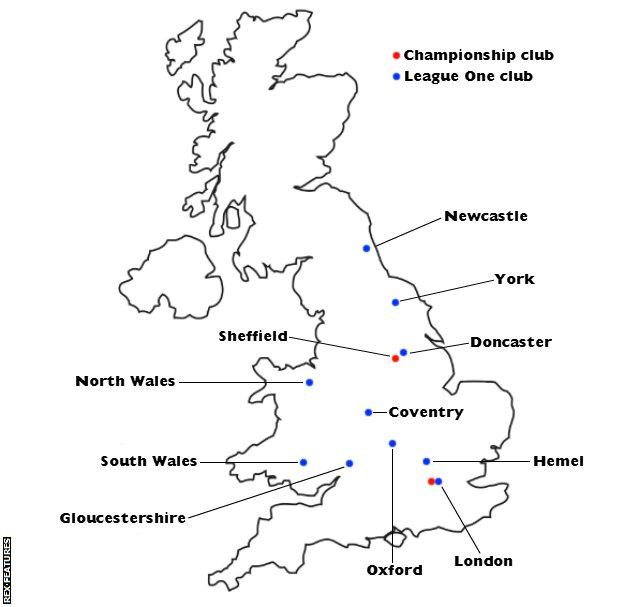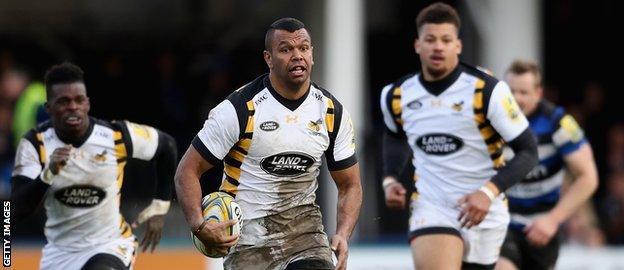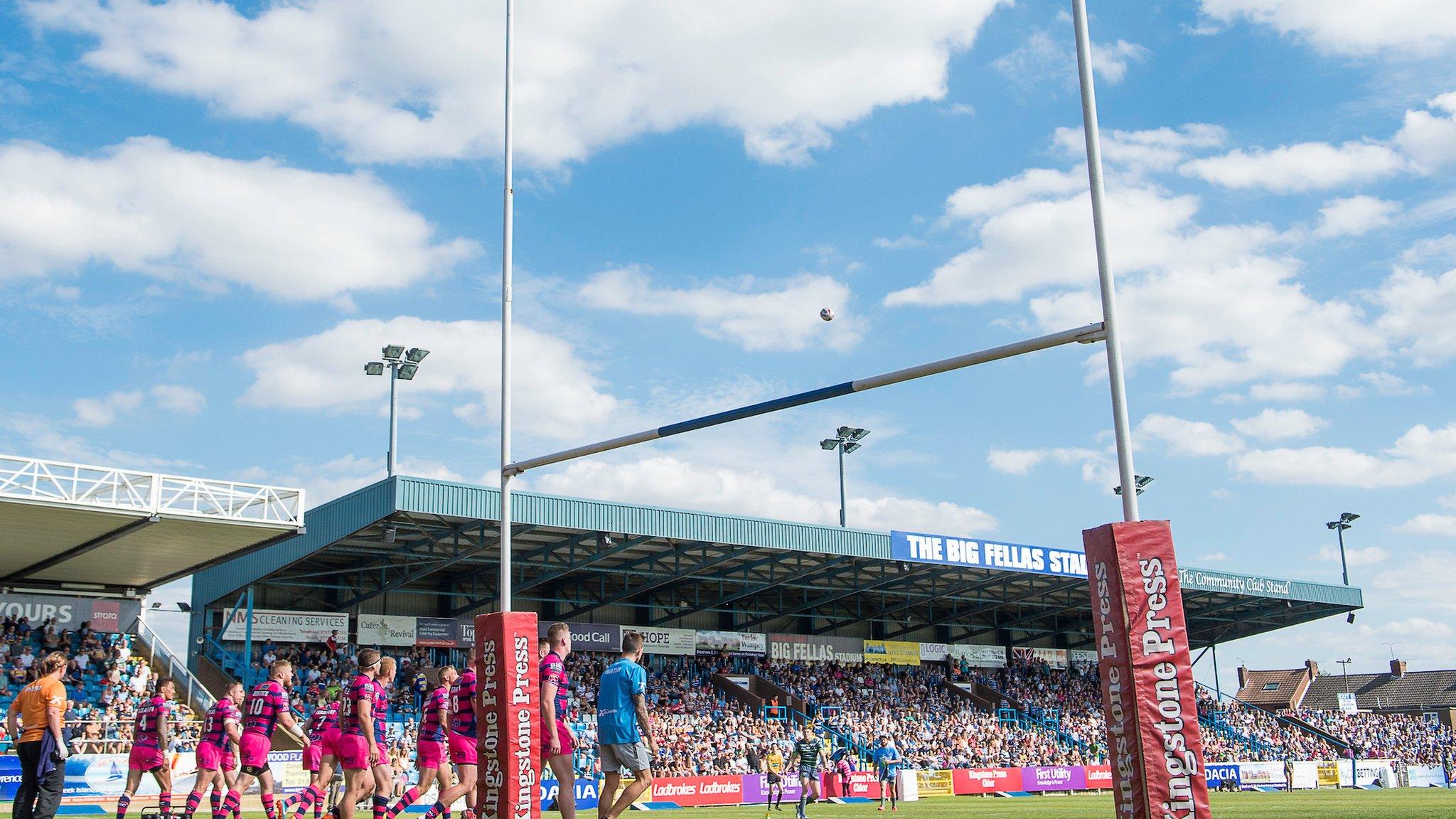Mark Foster: RFL 'would consider' club city franchise moves
- Published
- comments
Expand or develop? Rugby league's growth plan
Super League would consider the prospect of clubs moving to new cities in the interest of the sport, says general manager Mark Foster.
There is no precedent in rugby league although there have been mergers, such as Hull taking over Gateshead in 2000.
Wasps moved from London to Coventry in the union code, while in American football St Louis Rams once again became LA Rams, external after the 2016 season.
"I don't think we could say no to that," Foster told BBC 5 Radio 5 live.
The discussion has made more pertinent by the situation with Wakefield, who are to leave Belle Vue at the end of the season and have struggled to come to agreement on a new, purpose-built venue in their home borough.
"We would have to listen to the full argument, consider the pros and cons, and weigh it up. In the case of Wakefield they are where they are and we want them to be strong.
"If any club owner came to us to say they hoped we could grow the sport we would have to listen to that."
The old franchise system, operated between 2009-2014, saw clubs apply to join and remain in Super League based along criteria.
However, new franchise applications came from existing clubs such as Widnes - who were eventually successful - Featherstone and Leigh, or brand new ventures such as Celtic Crusaders.
Rugby league's national spread
What the decision to consider parachuting a Super League club into a new territory fails to acknowledge is that there are many clubs operating in the 'professional' game across the country.
Map of non-heartland clubs

In addition to the clubs in England and Wales, there is Toulouse in France and Toronto in Canada
'We're not as strong as we think'
Rugby league is intrinsically linked to its traditional 'places of worship' by its history.
Northern union was created to ensure that players, who worked in the traditional industries of the north of England such as coalmining, shipbuilding, steelmaking and textiles were recompensed for injuries picked up while playing rugby.
Those towns and cities in the industrial belt of northern England, which run along the route of the M62, have been the lifeblood of the sport, keeping the game alive for more than a century.
"I don't believe we're quite as strong as we think we are in the heartlands," ex-England prop Eorl Crabtree said.
"We've got some great Super League teams around but further down it doesn't work.
"I went to an amateur rugby union ground for some coaching where there were 280 kids on a Saturday morning, I tried to think of rugby league clubs around me who could get that and I could only think of one.
"The way to expand is build foundations and invest in youth. I think it makes a massive difference when you have local teams, with great facilities, and the ability to send players onto a pathway.
"At Huddersfield when kids get to 14 years of age, we lose them. They lose interest and it's about trying to keep that interest and having really good youth set-ups at amateur level.
"If we build our foundations, we can go a lot further down and that's for me where the money should be invested."
Expand or develop?
Rugby league has had new clubs such as transatlantic pioneers Toronto Wolfpack, who came into the league system with the help of enthusiastic and wealthy backer Eric Perez.
Their arrival to fanfare and media interest was juxtaposed by the near-demise of the sport's presence in Bradford over the winter, with the Bulls liquidated and a new club formed by Andrew Chalmers and Graham Lowe.
Other clubs outside Super League have struggled financially, including Whitehaven and Workington - two Cumbrian clubs with a long-standing heritage.
"It has to be the priority - to look after where were are at the moment and make ourselves really strong in those areas," Castleford Tigers head coach Daryl Powell told the Super League Show.
"I think we should be growing outwards, we have strong rugby league areas in Cumbria and Sheffield outside the M62 corridor but it's still growing the game.
"A Super League club should be in those areas before we start taking it too wide. Think about the support of the game - it's difficult to drop a team into an area without Super League support.
"It tends to fall away if you don't get it right - that's the last thing we need as a sport, we need positive stories and Toronto could potentially be one."
Influenced by Wasps, but still focused on existing clubs

Kurtley Beale arrived from the southern hemisphere Super Rugby to play in the English Premiership
Wasps' success in rugby union in terms of finances, on-the-field achievement, and community buy-in has made the prospect in league an appealing one.
The situation Wasps found themselves in - without a ground of their own, located in a capital city with rival union and other sporting clubs but with strong support base and a well-established brand - made a switch to a new territory an easy option.
In turn, their new-found wealth has helped attract world stars such as Kurtley Beale and Willie Le Roux.
"Wasps' situation is interesting, they moved their rugby union club from London into Coventry, and crowds hugely increased," Foster continued.
"They did the same with their Super League netball club - they created a franchise and with rugby league brought a Four Nations game there.
"We're keeping an eye on that - for me it's about making the 12 clubs 'businesses' that can compete in Super League as best they can."
- Published13 March 2017
